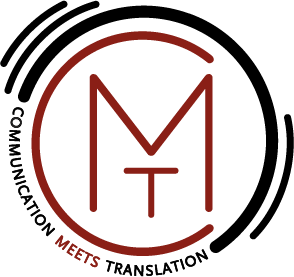Translation of financial statements and other financial translations
Our translation service for financial statements and other financial translations is specifically designed to meet your translation needs and is addressed to any company that interacts with a group of foreign shareholders or which intends to take on the global market, or even investors interested in opening branches abroad.
Financial statements are concrete proof of an organisation’s stability, since they periodically report on a company’s economic and financial situation.
The financial statements, including all accounting documents and financial reports, depict a clear and undeniable overview of the health of a company. Access to the economic and financial documents of a company is essential for company directors, partners, members, shareholders, potential investors, clients, competitors and even supervisory bodies: essentially, all stakeholders.
When a company is listed on a foreign market, when foreign investors are involved or when part of the management team speaks another language, financial documents are needed in the lingua franca chosen by the management team or the reference market.

Why should you rely on CMT to translate your financial statements and financial documentation?
Various departments within a medium-to-large enterprise contribute to the drafting of the financial statements: Corporate Affairs Department, Legal Department, Mergers & Acquisitions Division, Accounting Department, and last but not least, the department in charge of corporate communication.
It is normal for several versions to exist when creating such a large document (be it consolidated financial statements or the financial statements of just one Group company).
Our vast experience in managing and translating the various sections of financial statements, as well as any additions made during the project by the various collaborators, is the added value offered to customers by CMT, as a partner.
The CMT approach to financial translations
CMT’s resources include specialised native translators with consolidated experience in the translation of financial statements and financial texts, as well as high production capacity, while maintaining high-quality standards in accuracy and precision. Given the importance of the content, including corporate economic figures that are still confidential at the time of translation, expert translators who work with professionalism and maximum confidentiality are chosen.
If the documents are required very quickly, CMT’s management system allows for several translators to be added to the same project. Each translator will always have access to the specific customer’s terminology database, to maintain consistency and speed of delivery.
The use of expert, sector-specific translators also makes it possible to detect any inconsistencies in the source text during translation.
The CMT modus operandi
In accordance with UNI EN ISO 17100:2017 certification, and project management best practices, CMT structures its approach to the translation of financial statements and financial translations in general around constant collaboration with the customer. The process involves:
- the assignment of a dedicated account manager to take on and manage the project;
- a kick-off meeting to define the required delivery times and various check-points;
- the identification of the costs for the customer;
- the verification of the availability of a team of expert translators and proofreaders who will follow the entire project from start to finish.

The importance of post-translation checks
Once the translation is complete, proofreaders check that the financial translation is correct from a grammatical, syntactical and formal perspective. They analyse any misunderstandings, correct any errors and make the text uniform, particularly in cases where different translators are used. Before delivery, CMT also oversees DTP (desktop publishing), during which it aligns every element relating to page layout such as formatting, bullet points, footnotes, headings, page numbers and more.
It is also possible to ask for the financial translation to be reviewed by an expert in financial statements who knows the accounting standards to which the report is drafted. This expert carefully inspects terminology doubts, provides consulting and useful tools to understand and render the translated text correctly.
Possible types of financial texts and financial reports
Vast experience in the field of translating financial statements and other financial documents allows the specialised translators at CMT to manage a wide variety of economic documents, such as the various types of financial reports:
- Full financial statements (balance sheet, income statement, financial report, explanatory notes)
- Consolidated financial statements
- Statutory accounts
- Annual reports
- Quarterly reports
- Half-yearly reports
- Interim reports
- Sustainability reports
And other related documents including:
- Press releases to present financial figures
- Press notices
- Reports on operations
- Board of statutory auditors’ reports
- Financial statement tables
- Explanatory notes
- Infographics

